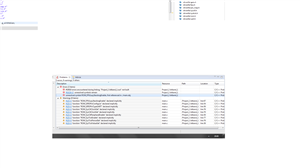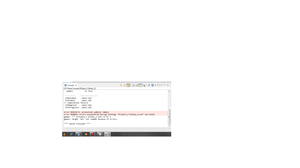Hi.
I try to make a code that must blink a led, but i receive some errors (see attache.).
This is my code :
#include <stdint.h>
#include <stdbool.h>
#include "inc/hw_memmap.h"
#include "inc/hw_types.h"
#include "driverlib/debug.h"
#include "driverlib/gpio.h"
#include "driverlib/fpu.h"
#include "driverlib/pin_map.h"
#include "driverlib/sysctl.h"
#include "driverlib/systick.h"
#include "driverlib/rom.h"
#include "driverlib/uart.h"
#include "utils/uartstdio.h"
static volatile uint32_t g_ui32Value; // The value that is to be modified via bit-banding.
#ifdef DEBUG
void
__error__(char *pcFilename, uint32_t ui32Line)
{
while(1)
{
UARTprintf("Error at line %d of %s\n", ui32Line, pcFilename);
}
}
#endif
// Delay for the specified number of seconds.
// Depending upon the current SysTick value, the delay will be between N-1 and N seconds.
void Delay(uint32_t ui32Seconds)
{
while(ui32Seconds--)
{
while(ROM_SysTickValueGet() > 1000) // Wait until the SysTick value is less than 1000.
{
}
while(ROM_SysTickValueGet() < 1000) // Wait until the SysTick value is greater than 1000.
{
}
}
}
void ConfigureUART(void) // Configure the UART and its pins. This must be called before UARTprintf().
{
ROM_SysCtlPeripheralEnable(SYSCTL_PERIPH_GPIOA); // Enable the GPIO Peripheral used by the UART.
ROM_SysCtlPeripheralEnable(SYSCTL_PERIPH_UART0); // Enable UART0
ROM_GPIOPinConfigure(GPIO_PA0_U0RX); // Configure GPIO Pins for UART mode.
ROM_GPIOPinConfigure(GPIO_PA1_U0TX);
ROM_GPIOPinTypeUART(GPIO_PORTA_BASE, GPIO_PIN_0 | GPIO_PIN_1);
UARTClockSourceSet(UART0_BASE, UART_CLOCK_PIOSC); // Use the internal 16MHz oscillator as the UART clock source.
UARTStdioConfig(0, 115200, 16000000); // Initialize the UART for console I/O.
}
int main(void) // This example demonstrates the use of bit-banding to set individual bits within a word of SRAM.
{
uint32_t ui32Errors, ui32Idx;
ROM_FPULazyStackingEnable(); // Enable lazy stacking for interrupt handlers.
// This allows floating-point instructions to be used within interrupt handlers, but at the expense of extra stack usage.
ROM_SysCtlClockSet(SYSCTL_SYSDIV_1 | SYSCTL_USE_OSC | SYSCTL_OSC_MAIN | SYSCTL_XTAL_16MHZ); // Set the clocking to run directly from the crystal.
ConfigureUART(); // Initialize the UART interface.
UARTprintf("\033[2JBit banding...\n");
ROM_SysTickPeriodSet(ROM_SysCtlClockGet()); // Set up and enable the SysTick timer. The SysTick timer period will be set up for one second.
ROM_SysTickEnable();
g_ui32Value = 0; // Set the value and error count to zero.
ui32Errors = 0;
UARTprintf("\r%08x", g_ui32Value); // Print the initial value to the UART.
Delay(1);
for(ui32Idx = 0; ui32Idx < 32; ui32Idx++) // Set the value to 0xdecafbad using bit band accesses to each individual bit.
{
HWREGBITW(&g_ui32Value, 31 - ui32Idx) = (0xdecafbad >> (31 - ui32Idx)) & 1; // Set this bit.
UARTprintf("\r%08x", g_ui32Value); // Print the current value to the UART.
Delay(1);
}
if(g_ui32Value != 0xdecafbad) // Make sure that the value is 0xdecafbad.
{
ui32Errors++;
}
for(ui32Idx = 0; ui32Idx < 32; ui32Idx++) // Make sure that the individual bits read back correctly.
{
if(HWREGBITW(&g_ui32Value, ui32Idx) != ((0xdecafbad >> ui32Idx) & 1))
{
ui32Errors++;
}
}
if(ui32Errors) // Print out the result.
{
UARTprintf("\nErrors!\n");
}
else
{
UARTprintf("\nSuccess!\n");
}
while(1)
{
}
}







